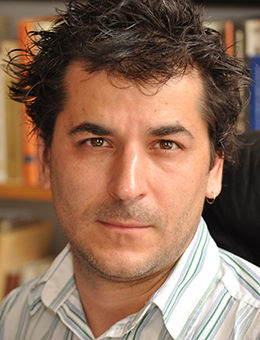
Zsolt Demetrovics
PhD, DSc, is professor of psychology at the ELTE Eötvös Loránd University, Budapest, Hungary and chair of the Centre of Excellence in Responsible Gaming at the University of Gibraltar. He is clinical psychologist, cultural anthropologist, and has a Ph.D. in clinical and health psychology (addictive behaviors). Formerly, he served as dean of the Faculty of Education and Psychology (2014-2021) and director of the Institute of Psychology (2011-2021) at the ELTE Eötvös Loránd University, where he also established the Department of Clinical Psychology & Addiction. He has published numerous research papers on the epidemiology, assessment and psychological correlates of substance use behavior and behavioral addictions including gambling, video game use, problematic internet use, exercise addiction, and compulsive buying. He is former president of the Hungarian Association on Addictions. He is funding Editor-in-Chief of the Journal of Behavioral Addictions and president of the International Society for the Study of Behavioral Addictions.
Csaba Barta
Csaba Barta, MD, PhD is an Associate Professor at the Institute of Medical Chemistry, Molecular Biology and Pathobiochemisry at Semmelweis University, Budapest, Hungary. As a molecular geneticist specializing in psychiatric genetics his main research interest are genetic and epigenetic risk factors in substance use disorder, ADHD and Tourette disorder. He participates in a number of large international collaborations, eg. TS-Eurotrain: Interdisciplinary training network for Tourette Syndrome, as well as the International Consortium on ADHD and Substance Abuse (ICASA).
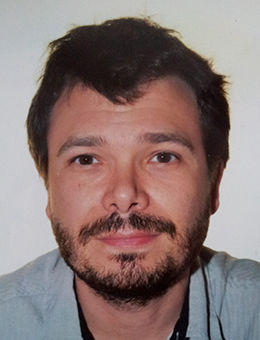
Joël Billieux
Joël Billieux is associate professor of clinical psychology at the University of Luxembourg and visiting professor at the Catholic University of Louvain (Louvain-La-Neuve, Belgium). He is head of the Addictive and Compulsive Behaviours Lab (ACB-Lab) and member of the Integrative Research Unit on Social and Individual Development (INSIDE, University of Luxembourg). He is also associated researcher at the Addictology Division (Geneva University Hospitals) and Center for Excessive Gambling (Lausanne University Hospitals). He earned his PhD in Psychological Sciences and accomplished his postgraduate CBT training at the University of Geneva. His main area of research regards the psychological factors (cognitive, affective, motivational, interpersonal) involved in the etiology of addictive behaviors, with a particular focus on self-regulation-related processes. Another focus of his research is the conceptualization and diagnosis of behavioral addictions. Since 2014, he is an expert in a World Health Organization workgroup related to the public health implications of behavioral addictions associated with the excessive use of ICTs. Since 2017, he is board member of International Society for the Study of Behavioural Addictions (ISSBA). He has published more than 150 peer-reviewed papers, several book chapters, and three books. He is Regional Assistant Editor for International Gambling Studies, Associate Editor for the Journal of Behavioral Addictions, Section Editor for Current Addiction Reports, and member of several other editorial advisory boards.
Beáta Bőthe
Beáta Bőthe currently works at the Institute of Psychology, Eötvös Loránd University, she is a member of the Social Interventions Lab at the university. She has co-authored more than 30 international scientific papers. She investigates the personality, situation and motivation background of problematic and non-problematic pornography use. She is particularly interested in the role of social and situational factors that could lead to the development of behavioral addictions. Her goal is to find practical solutions to research findings; she is currently working on a pornography use reduction intervention program.
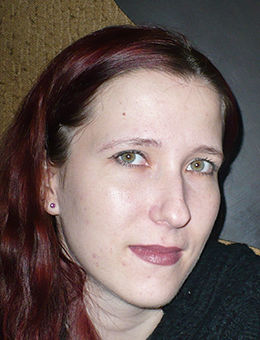
Andrea Eisinger
She graduated as a psychologist in 2011 at the ELTE PPK specialized in Clinical and Health Psychology. Currently she continues her studies at the ELTE PPK Doctoral School of Psychology (personality and health psychology program). Her dissertation topic is the motivational background of cannabis use. Since 2013 she is the secretary of the Hungarian Association on Addictions and the coordinator of the ELTE Gambling Service.
Katalin Felvinczi
Katalin Felvinczi, female, Ph.D. habil. is a social psychologist, deputy director of the Institute of Psychology at the ELTE. She has been involved in the drugs field for 18 years, up till quite recently she was the director of the National Institute for Drug Prevention. During this period she was working on the establishment of the organisational structures able to ensure the implementation of Hungary’s national drug strategy. Her main research interest is connected with the development and monitoring/evaluation of substance use related demand reduction interventions. In the past few years she participated in the implementation of several research and/or research development projects which main objectives were to contribute to the development of quality standards in the field of substance use prevention programmes on the one hand, and to reveal the social and societal factors underpinning substance use, on the other. She is the secretary general of the Hungarian Association on Addictions, she was substitute member of the management board of the European Monitoring Center on Drugs and Drug Addictions between 2013 and 2015 on behalf of the European Parliament.
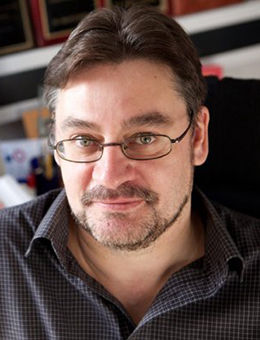
Mark Griffiths
Dr. Mark Griffiths is a Chartered Psychologist and Distinguished Professor of Behavioural Addiction at the Nottingham Trent University, and Director of the International Gaming Research Unit. He is internationally known for his work on behavioural addictions, has published over 770 refereed research papers, five books, 150+ book chapters and over 1500 other articles. He has won 19 national and international awards for his work. He also does a lot of freelance journalism and has appeared on over 3500 radio and television programs, and written over 350 articles for national and international newspapers and magazines.
Orsolya Király
Orsolya Király, PhD works as a senior lecturer at the Institute of Psychology, Eötvös Loránd University, Budapest, Hungary. Her main research interest relates to the psychology of video games in general and problematic gaming (or “video game addiction”) in particular. She is also interested in the psychology of internet and social networking sites use, as well as the impact of digital technology on our lives. She has published over 30 referred papers in several international journals and presented her work in numerous national and international conferences related to addictions, psychology and mental health. She has also hold several popular-science lectures and wrote a great number of popular-science articles related to her area of expertise.
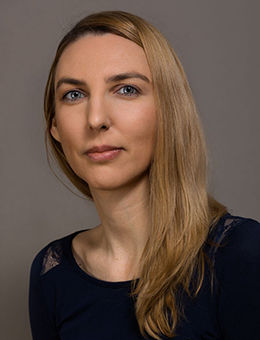
Gyöngyi Kökönyei
She is a senior lecturer at Eötvös Loránd University, Faculty of Education and Psychology, Department of Clinical and Addiction and also works as a researcher consultant at SE-NAP2 Genetic Brain Imaging Migraine Research Group (Semmelweis University). She was awarded with the János Bolyai Research Fellowship (by the Hungarian Academy of Sciences, 2011-2014), and with the Young Researcher Prize (by the Eötvös Loránd University, 2015). Her research focuses on emotion regulation: particularly on the relationship between rumination and mental and physical health using diverse methodology.
Beatrix Koronczai
Clinical child psychologist, assistant professor at Eötvös Lorand University, Department of Developmental and Clinical Child Psychology. Her research area is problematic internet and social media use. Besides her teaching and research activities, she conducts individual therapy for adolescents and young adults as well as couple and family therapy. She is also a qualified psychodrama director and leads psychodrama groups for teenagers.
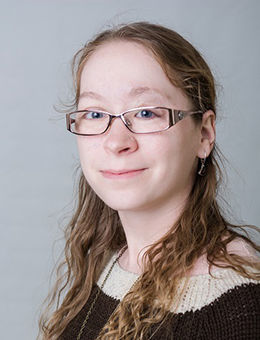
Eszter
Kótyuk
She is an assistant professor at the Department of Affective Psychology, Institute of Psychology, Eötvös Loránd University since 2015. Also, since July 2018 she participates in a Lendület II. Project entitled ‘Key elements of successful adaptation to survive in a challenging Environment’ funded by the Hungarian Academy of Sciences as a postdoctoral researcher. Between 2015 and 2018 she was awarded a postdoctoral research scholarship founded by the Hungarian Academy of Sciences to a project investigating the psychological, genetic, environmental and biometric aspects of addictions. In 2014 she was a postdoctoral research scholar at the Cognitive Psychology Lab, Washington University in Saint Louis, USA where she participated in the Lab’s ongoing projects investigating the psychological aspects of aging. Main research interests: addictions, genetic association analysis, adaptation in challenging environments.
Bernadette
Kun
Bernadette Kun, PhD is a psychologist and senior lecturer at Eötvös Loránd University, Institute of Psychology in Budapest, Hungary. She had the master degree in psychology at Eötvös Loránd University, Faculty of Psychology and Education and she defended her PhD dissertation in 2011. The title of her dissertation was ‘The role of emotional intelligence and social and emotional competencies in psychoactive substance use’. She worked as a researcher and project leader in the Hungarian National Institute for Drug Prevention between 2006 and 2011. She is a senior lecturer at Eötvös Loránd University, Department of Clinical Psychology and Addictions since 2011. Her actual main research fields are the behavioral addictions such as work addiction, exercise dependence, gambling disorder, and compulsive buying.

Anna Magi
Psychologist. Assistant lecturer at the Department of Clinical Psychology and Addictions, Institute of Psychology, Faculty of Education and Psychology. Main research interests: prosocial consequences of psychopathic traits, the role of psychopathic traits in addictions, epidemiology and psychological background of addictions.
Borbála Paksi
Sociologist, economist-teacher. She has been a researcher for 30 years and has been involved in 80 research projects, being a leader in more than 50. Her main research areas of interest: epidemiology of addictions, and monitoring and evaluation of prevention interventions. Her work is crucial in the area of addiction research in Hungary. She is member of the Board of the Hungarian Association on Addictions as well as the Hungarian Association of Drug Prevention and Harm Reduction Services.

Marc Potenza
Dr. Marc Potenza is a board-certified psychiatrist with sub-specialty training in addiction psychiatry. He has received the following degrees from Yale University: BS/MS with Honors in Molecular Biochemistry and Biophysics, PhD in Cell Biology, and MD. He completed internship, psychiatric residency and addiction psychiatry fellowship training at Yale. Currently, he is a Professor of Psychiatry, Child Study and Neuroscience at the Yale School of Medicine where he is a Senior Scientist at the Connecticut Council on Problem Gambling and the Director of the Problem Gambling Clinic, Center of Excellence in Gambling Research, and Women and Addictive Disorders Core of Women's Health Research at Yale. He is on fifteen editorial boards (including editor-in-chief of Current Addiction Reports) and has received multiple national and international awards. He has consulted to the SAMHSA, NIH, APA and WHO on matters of addiction. He has participated in two DSM-5 research work groups.
Melinda
Reinhardt
Melinda Reinhardt, PhD is a clinical psychologist and art therapist. She is working as an assistant professor at the Institute of Psychology of the ELTE Eötvös Loránd University. Her main research interests are on nonsuicidal self-injury, adaptive and maladaptive forms of perfectionism, and co-rumination in different relationships.

Attila
Szabó
Attila Szabo (PhD, DSc) completed his university education (BSc, MSc, PhD) in Montreal, Canada. Subsequently, he worked at the Trent University in the United Kingdom, first as Senior Lecturer then as Reader for nearly nine years. In 2007, Attila joined the ELTE Eötvös Loránd University where currently he is Professor of Psychology. In 2017 he became Doctor of the Hungarian Academy of Sciences and so he has earned the title Doctor of Science (DSc). Attila has extensive international collaboration with scholars around the world. He has close to 3000 citations and several hundred scholastic works.

Dóra
Várnai
My name is Dóra Eszter Várnai. I graduated in Psychology and Pedagogy, and currently I am an asssistant research fellow at the Eötvös Lorand University in the Department of Clinical Psychology and Addictology. Since finishing the university, I have been working as a researcher in the Health Behaviour in School Aged Children Study and my main field of interest is bullying. I have worked as a school psychologist as well and I have also participated in national level antibullying program development (such Enable or another program for kindergarden aged children).
Andrea
Vereczkei
I received my MSc degree in applied zoology at the Faculty of Veterinary Science, Szent István University (2009). I started my research in 2006 under the supervision of Dr. Mária Sasvári-Székely and Dr. Csaba Barta at the Institute of Medical Chemistry, Molecular Biology and Pathobiochemistry at Semmelweis University. I received my PhD degree there (2015) in molecular biology focusing on the genetic background of the development of heroin addiction and the applied substitution therapies. I am currently working as an assistant lecturer and besides the education, the center of my research is the genetics and epigenetics of addiction and other psychiatric illnesses.
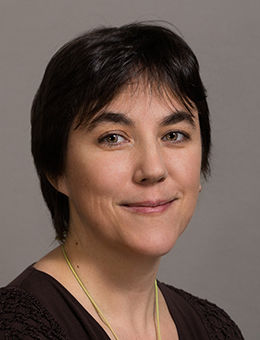
Anna Veres-Székely
Psychogenetic Research in collaboration with the Semmelweis University investigating candidate genes in the background of human behavior. We have developed new measures to characterize temperament, mood characteristics, flow-proneness, hypnotic susceptibility, and information-processing speed of the participants and constructed a gene bank consisting of several thousand biological samples linked to detailed psychological profiles and several determined genotypes. Our most recent genetic association links a specific gene variant to longevity. Our results help to understand the genetic background of human characteristics and widen the list of confirmed endophenotypes. Currently head of the MTA-ELTE Lendület Adaptation Research Group, investigating adaptation to new environments. We introduce a novel approach in investigating elements necessary for resilience in individuals starting preschool, school, or university. We use information-technology-based systems to provide seamless and instant feedback on individual changes on key elements of adjustment to caregivers, alongside effective intervention techniques utilizing biofeedback to promote resilience.